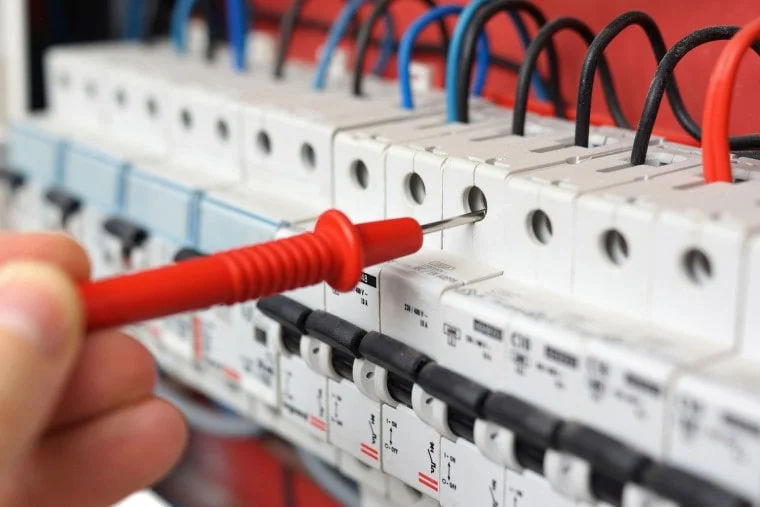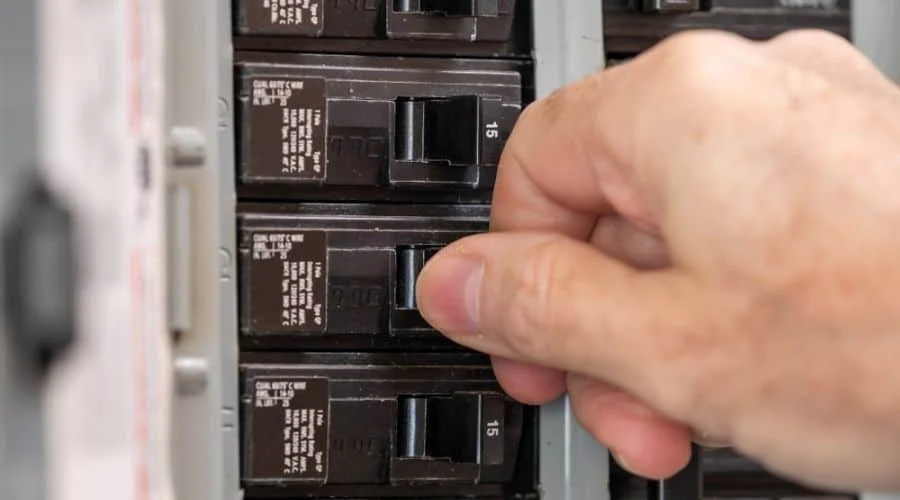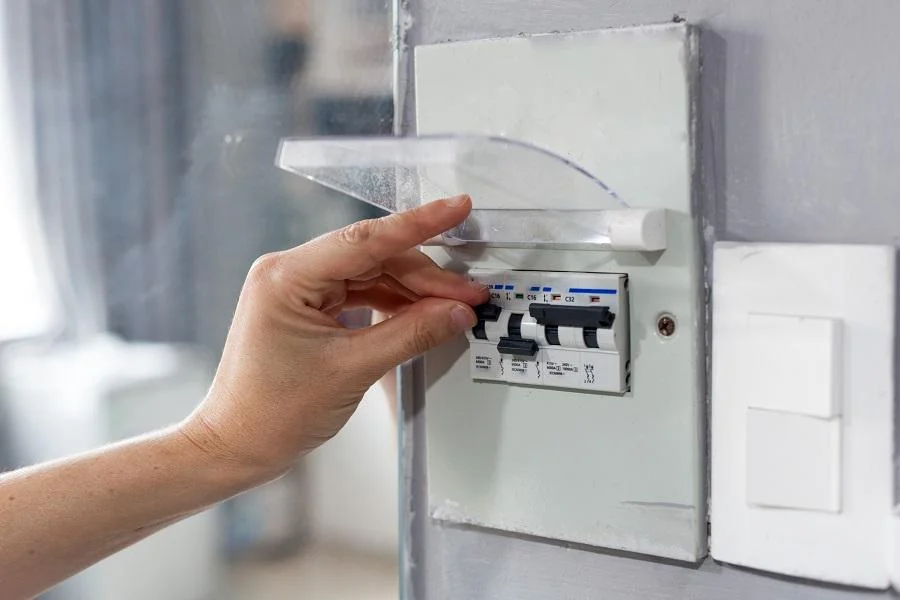Have you noticed that your circuit breaker tripped much more often than your light switches? Everything looks fine until suddenly the power goes out again. It can be annoying, bothersome and, to be honest, vaguely worrying too. Frequent episodes of breakers tripping usually mean there’s an electrical issue that you should not overlook. Breaker panic can be caused by many appliances, but this guide has you covered. We’ll explain why does circuit breaker keep tripping, how to fix the problem, when to be concerned, and how to prevent it from recurring in the future. You don’t need any special skill or training to understand your electrical system. You are exactly in right place if you want to control the electricity at your home.
Common Reasons Your Circuit Breaker Keeps Tripping

Being aware of why your circuit breaker disrupts regularly can guide you in pinpointing the problem early. Here are the top reasons it can happen:
1. Overloaded Circuit (Too Many Appliances Running)
In most cases, a tripped breaker happens when the circuit becomes overloaded. If more than usual devices or appliances are connected to the circuit, they can pull too much electricity which is dangerous. Sometimes, all three of these—a space heater, microwave and vacuum cleaner—can wear out a circuit if used together.
2. Short Circuit (Faulty Wiring or Device)
When a hot wire comes into contact with either another hot wire or a neutral wire, a short circuit takes place. If the wiring is poor, appliances are damaged or the connections are loose such an issue may occur. When there is a short circuit, the breaker is tripped to protect the equipment and prevent a possible fire from the surge of electricity.
3. Ground Fault (Moisture or Damaged Wiring)
Similarly to short circuits, a ground fault results when a hot wire touches a part of the system that is grounded such as a metal box or a ground wire. This problem is normally caused by water inside the outlets or bad wiring. They are meant to shut off quickly in case of an electrical fault, mainly when used in kitchens and other bathrooms.
4. Old or Faulty Circuit Breaker
On some occasions, the very breaker may be the cause of the issue. With time, breakers might fail and connect or disconnect the power even when it’s not necessary. If a breaker keeps tripping for no apparent reason, it can often mean it should be changed.
5. Loose Electrical Connections
A breaker panel or outlet with wires in poor connection can result in occasional tripping. If the connecting wires are loose, electrical sparks or current changes may take place, leading to breakers tripping. Because this might be hazardous, it should be examined by someone qualified.
How to Fix a Tripping Circuit Breaker (Step-by-Step Guide)

For those who are at ease with basic electrical troubleshooting, the following tips can help with a tripping breaker:
Step 1: Unplug Devices & Reset the Breaker
First, switch off every device and appliance that is connected to the damaged circuit. After that, open the breaker panel and shut off the tripped breaker by turning it all the way in one direction, then back in the other. This will repair the breaker. If everything runs normally, plug in devices one at a time to determine which one is responsible for the trip.
Step 2: Check for Overloaded Circuits
When many devices are on and the breaker trips, it may be that your circuit is overloaded. Use various circuits for high-powered appliances or limit yourself to running a few higher-wattage appliances at the same time. In most cases, this easy step settles the problem for you.
Step 3: Inspect for Short Circuits
Examine the cables and switchbacks in the home for possible damage. Check if there are any burn markings, strange smells or if the light flickers in the circuit you’ve noticed a problem in. Should you suspect a short circuit, stay away from the circuit and contact an electrician to investigate and fix it.
Step 4: Test GFCI/AFCI Breakers
For breakers in your panel with the GFCI or AFCI designations, use the test button to check them. They prevent issues related to ground faults and arc faults and will disconnect the circuit if a risk is detected. Once you test them, press the reset button, but if they trip again, you should call an electrician.
Step 5: Call a Licensed Electrician
If the issues with breaking down continue even after doing the listed steps, you should now contact an electrician. Electrical problems can be serious and might cause harm. A skilled technician can discover wiring problems, repair your breakers and verify that your system is safe.
When Should You Worry About a Tripping Breaker?

If the breaker is tripping over and over again, this could mean there is a significant problem.
Signs of a Serious Electrical Problem
After resetting the breaker, it trips very quickly.
- Noticing smoke or burning odors next to the outlets or breaker panel.
- Damage or problems with the outlets or switches.
- Lights that either go dim or flicker while traveling.
- Several breakers tripping all at the same time.
Should you observe any of these issues, do not use the circuit and make sure to call an electrician straight away.
Can a Tripping Breaker Cause a Fire?
A circuit breaker is meant to stop electric current during hazardous circumstances to prevent fires. If trips are not fixed, the problem may be found in the wiring which can increase the risk of electrical fires. Notice when your AC trips often, since it means your system needs assistance.
How Often Should Breakers Trip Normally?
Breakers should not trip unless there is an extraordinary situation such as an outage. Infrequent trips may happen due to a full circuit, but if trips happen regularly, they should be addressed by a professional. Routine updates and proper maintenance of your electrical system can prevent many stumbles.
Preventative Tips to Avoid Future Tripping
Preventive actions will keep you comfortable and ensure your home is secure.
Upgrade Your Electrical Panel: In many older houses, the panels are not designed to carry today’s amount of electricity. Replacing your existing panel with a model of higher capacity and AFCI/GFCI protection can make your home safer.
Use Dedicated Circuits for High-Wattage Appliances: Ovens, dryers and HVAC units require their own circuits because of the power they use. Plugging them into a shared circuit could overload it and lead to a disruption of power.
Schedule Annual Electrical Inspections: An inspection by a licensed electrician at least once a year can discover any issues with wires, connections or breakers before they become troublesome. By arranging a yearly checkup, you help keep your wires safe and protected.
Conclusion
Tripping circuit breakers should suggest to you that something in your electrical system should be checked. In any case of an overloaded circuit, a short, ground fault or a faulty breaker, you should fix the problem immediately. If the problem continues, turn off all electric equipment, reset the power breaker and request the help of a licensed electrician if you notice something dangerous. To enjoy better electric safety in your home, schedule upgrades to your main panel and make regular check-ups a habit. If you are based in Pompano Beach, FL and its vicinity, choose Exclusive Electric Service. To find a competent inspector and correct your breaker issues the proper way.
FAQs
Low temperatures may cause wires to pull together, loose connections and even result in a short circuit or switch off of the breaker.
An issue with a socket can lead to various problems and this might cause the breaker to switch off.
Depending on the size of the job, the cost to replace a breaker can be from $100 up to $250.




